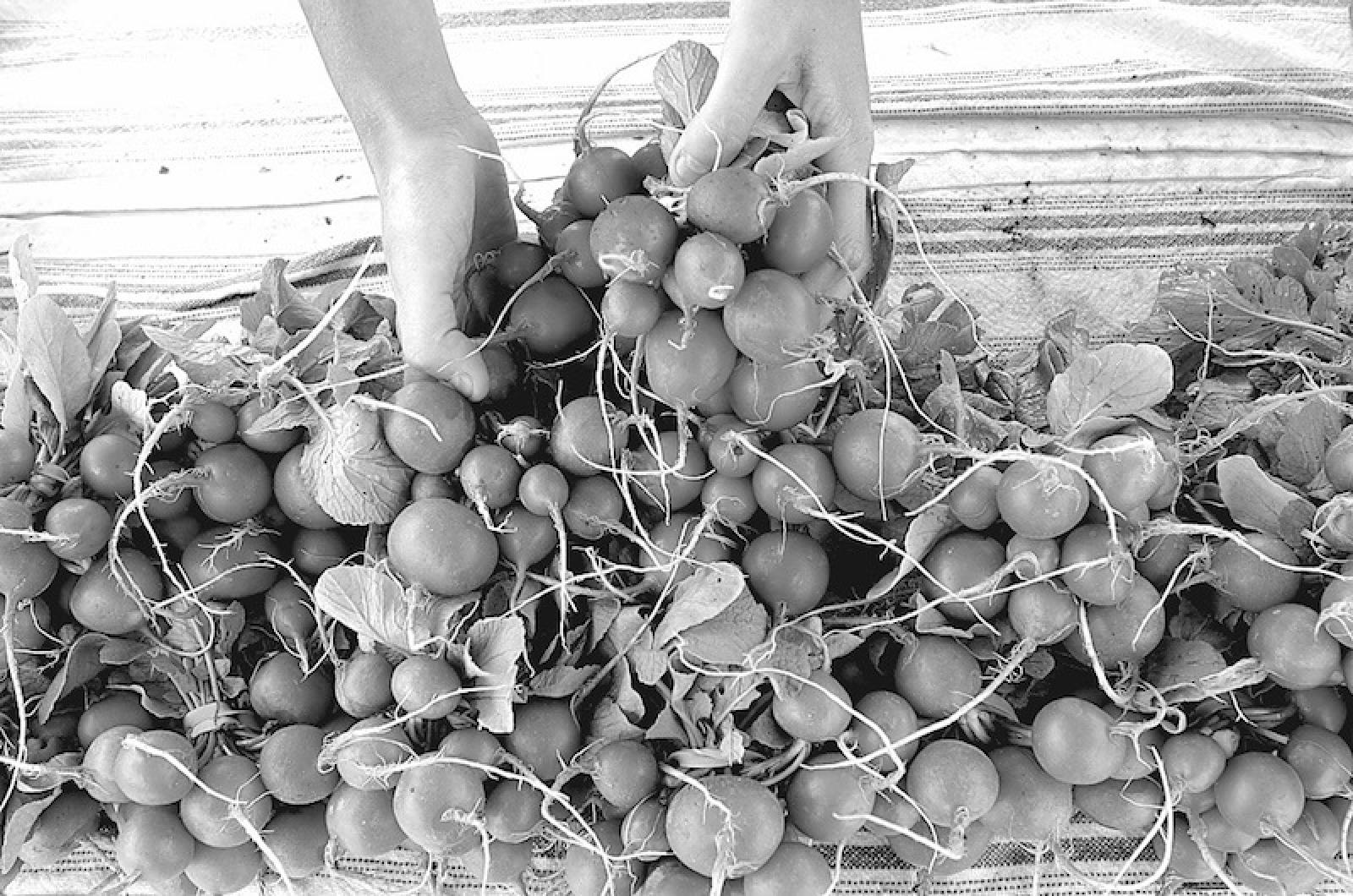From the May 3, 1974 edition of the Vineyard Gazette by Joseph Chase Allen:
It has always seemed to us that the harvest time is productive of the highest degree of satisfaction that mere man ever knows. The garnering of the fruits of his labor, the preparing of the soil, the planting of the seed, and the unending fight to protect his crop from bugs, blight and forces of nature, have all contributed to his reward, and however small this may be, he partakes of that same satisfaction that rewards the owner of a vast acreage.
There can be no actual harvest time for the man who plants a tiny plot to radishes, lettuce, and cucumbers, all of which he gathers as they ripen day to day, but the responsibility of cleaning up his backyard garden when all is over for the season, brings some semblance of the harvest. At least, that is what we have always believed.
But we realize now that there are differences. We wonder why and also, what the cause, but having cleared up our small area of garden we will describe the event and also touch upon those features which filled heart and soul with distinct rebelliousness against a fickle, not to say, insidious nature. For, as our English brethren would say, “we feel that we have been had!”
For consider; we have nurtured our plants faithfully. We have waded among the seas of blossoming vines and leaves, parting the foliage to peer among the stalks, and plucking the vegetables as soon as they appear to be in their prime. We have built a trellis for our tomato plants, a wooden frame, with wire poultry-netting stapled to it, to support the vines and their fruits, and from time to time we have tied such vines to the wire until the expanse of greenery was dotted with the knots of soft cotton cloth.
Finally the effects of frost and generally falling temperature convinced us that we have plucked the final radish, gathered the last tomato and excavated the sole surviving carrot. The fall clean-up time was at hand and we fared forth with necessary implements, to gather the dead and dying vegetation and remove it.
There is nothing on earth looks deader than a worn-out squash vine, its stalk shrunken and brown, its leaves likewise, and it seemed to us that a few stokes of the wire rake would gather all in a heap, but this was not so.
It appeared to us that far from drawing sustenance from the hill where we planted the seed, that the squash vine put down roots wherever it traveled and thus was solidly attached to the soil in many places. We were obliged to pull up those roots before we could rake up the debris.
It was here that we made our shocking discovery. Under those brown, dead leaves, there were squashes, the largest we had found in our garden. Aged and hard of shell, they were of no value, but why could we not have espied them when in their prime? And how did they manage to conceal themselves so thoroughly?
We cut the lashing of our tomato vines, believing that once this was done the vines would fall to the ground. They didn’t! And we discovered that those tomato vines had thrust themselves through the wire netting, and then, in various cases, had looped back to the original side, actually sewing themselves to the trellis so perfectly that the lashings were not at all necessary. Further, there were tomatoes on those vines which we had not seen before; some ripe, some green and some decayed! We do not yet understand how we failed to see them as we plucked tomatoes daily.
Cucumbers, aged and yellow, were uncovered when we collected the vines, and radishes grown to a remarkable size and unfit for food, and many bean pods, dried and brown, which we had overlooked when we collected string-beans. In all, we gathered a huge basket full of these vegetables, the largest and fairest of the season, but useless because of their age.
Now why? We ask it! We approached the Queen of our household, and without giving our reason, we asked:
“Beautiful, does it appear to you that our faculties are failing? That we do not seem to realize our surroundings as we ought?”
“If,” said she, “you mean what I think you do, I would say that you need to have your glasses changed.”
“Beloved,” said we, “it seems clear to us that we are not the stalwart that we used to be, but we are reluctant to blame the glasses for all of our short-comings. But allow us to show you the collection of vegetables which we somehow missed.”
We turned away in what we felt was a dignified manner and proceeded to the garden plot where we had left the basket of vegetables. It was not there! In fact it was nowhere in sight now have we seen it since, though we have hunted over every foot of our diminutive estate.
We wonder what has happened. We know that failing eyesight on our part is not responsible; our Queenly Consort has also searched with us, but to no avail. Have we produced a variety of vegetation that is capable of concealing itself at will? Can it be that our tomatoes have been hiding from us deliberately, and are still hiding? We Wonder!
Compiled by Hilary Wall
library@mvgazette.com




Comments
Comment policy »